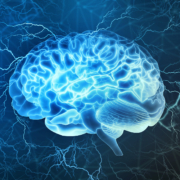Understanding more about young adults and ADHD
Rates of Attention-Deficit/Hyperactivity Disorder (ADHD) in young adults are increasing, presenting clinicians with challenges regarding how to assess, diagnose, and treat this population. Nobody understands this challenge better than Margaret Dawson, Ed.D., a psychologist with the Center for Learning and Attention Disorders at Seacoast Mental Health Center in Portsmouth, New Hampshire. Dawson has more than 40 years of clinical experience working with both children and adults with executive skill challenges, and she has co-authored several books on this topic, including Smart but Scattered and Coaching Students with Executive Skills Challenges. Dawson will collaborate with NAN on February 5 and 29 to deliver a two-part Webinar series titled, “Everything You Need to Know About Assessment and Intervention in Young Adults with ADHD.” BrainWise Managing Editor Matt Villano recently caught up with Dawson to discuss what to look for and how to measure ADHD in young adults, as well as practical interventions to improve functional living beyond the initial assessment. What follows is an edited transcription of their chat.
BrainWise: When you say rates of ADHD in young adults are increasing, what do you mean by ‘young’ adults?
Margaret Dawson: I’m putting it in the 18 to 25-year-old range. Kids in college if they’re in college, [and] that same age if they’re out in the workforce. One of the other characteristics of [this] age group is that they [still] may be more tied to their parents than [they are] when they’re older. It’s around age 25 that the frontal lobe reaches full maturation in typically developing individuals. It’s later with kids with ADHD, but that’s another reason to use 25 as a cutoff.
BrainWise: Why are rates of ADHD in young adults increasing?
Dawson: I think maybe our accuracy in making the diagnosis is [increasing].
BrainWise: What prompted your interest in studying ADHD?
Dawson: I started out as a school psychologist, and in that setting, I was seeing all kinds of kids with all kinds of problems. My original focus in my doctoral program was on learning disabilities, and ADHD in those days was called hyperkinetic syndrome. [Eventually] I moved out of public schools into a clinic setting. The clinic merged with a community mental health center. I started working at the Center for Learning and Attention Disorders in 1988. By then, ADHD was recognized as a condition, but it was still relatively new. We were getting a lot of requests for evaluations because schools were reluctant to do it on their own. On top of that, I have a family [connection to] ADHD. My oldest son was diagnosed with ADHD at the age of 14. I have three brothers, and two of them were diagnosed as adults diagnosed with ADHD.
BrainWise: What role does neuropsychology play in assessing and addressing ADHD?
Dawson: The most acceptable way to diagnose ADHD in adults is through an in-depth clinical interview combined with behavior rating scales completed both by the individual in question as well as at least one person who knows them well. The use of neuropsych testing is ancillary to that. I’ve learned a lot about a person [from full workups], but I’m basing my diagnosis on my interview, rating scales, and behaviors. I tend to do more neuropsych evaluations with younger kids, and I’m looking for their behaviors as they interact with my test materials.
BrainWise: What are you looking for when you seek to evaluate someone for ADHD?
Dawson: I’m looking for behavior that matches the diagnostic criteria of ADHD. Broadly speaking, that includes problems with attention and associated issues or problems with hyperactivity, impulsivity, or both. In young adults this can [present as] trouble managing money and difficulty holding a job because they tend to either get bored with a job quickly, they’re not following through on obligations, or they do things that get them asked to leave. That’s the hyperactive, impulsive side. On the inattention side, what you’ll see is jumping from one task to another, and difficulty sustaining attention over time to accomplish tasks that require lengthy concentration. I’ve had adults who have said to me, ‘Until I started on medication, I couldn’t read a whole book.’ Sometimes I also see executive skill challenges—problems with organization or planning or time management.
This is a childhood disorder, which means part of my clinical interview is going back and exploring what someone’s childhood was like? What did teachers say on report cards? How did the person talk about how they did in school? What was their best subject? What was their worst subject?
BrainWise: Where do young adults with ADHD seem to struggle most?
Dawson: Executive functioning. As you transition from one level to the next, from elementary to middle school, from middle school to high school, from high school to whatever you’re doing after high school, to college, to the workforce—at each one of these steps, there’s a greater demand on the executive skills required to be successful. If you have ADHD, these transitions can be difficult. It’s also important to note that struggling with executive functioning doesn’t necessarily always mean you have ADHD. I saw a guy a few years ago. An adult. He was a physician, and his wife thought he had an attention disorder. I took the history, he told me he did fine in high school, went to Harvard for an undergraduate degree, went to UCLA for med school, went to Columbia for his residency. He did great in his job as a physician, and I didn’t really think he had ADHD. When he was put into an administrative position, and his executive skills profile was not a good match for that position, he struggled. He had to be highly organized. He had to be better at planning. It wasn’t ADHD, but that’s where he hit the bump.
BrainWise: Can you give some examples of executive functioning skills?
Dawson: Adults have 12 different executive functioning skills. I’m going to give them to you in the order in which we think they emerge developmentally, which is not as relevant for adults but still helpful to keep in mind. Response inhibition is the first one. The next five: working memory, emotional control, flexibility, sustained attention, and task initiation. I’ve started calling these first six ‘foundational skills,’ because they’re the earlier skills to develop and they feed into the later skills, which are more complicated. The more advanced skills are planning and prioritizing, organization, time management, goal-directed persistence, metacognition, and stress tolerance. Different experts talk about executive skills differently. Hardcore researchers only look at three: response inhibition, working memory, and flexibility. But if you unpack what they’re including in those three, it’s got all the other skills in there. I use different terminology because it helps people to break apart skills in the context of what’s getting in the way of getting stuff done.
BrainWise: So how do you make that determination, that struggles with executive functioning exist but they’re not symptomatic of full-blown ADHD?
Dawson: That’s where you need norms. I’ve developed an executive skills questionnaire, and I use it with a lot of audiences. Occasionally I’ll collect the questionnaire and look at the average score for each of these skills and the range between a person’s weakest skill and strongest skill. On average, there’s a big gap between people’s strongest skill and weakest skill. I take those numbers and see if my patient is above the 93rd percentile. If they are, they likely don’t have ADHD. If they’re not, then I investigate whether their issues are having a significant impact on daily life functioning, either at home, in the workplace, or in relationships. You may be able to hold it together in the workplace because there are additional structures, supports, paychecks, and supervisors, but your house is a mess, and you have trouble following through. I worked with a guy a few years ago who was three years behind paying his taxes because that required task initiation on his part, and he had a busy job and a family with a couple of small kids. He did have an attention disorder.
I’ve also learned over the years that with couples, when there’s a contrast between one person’s strengths and the other person’s weakness, it often signals tension points in a relationship. I’m glad I’m not a marriage therapist.
BrainWise: If someone doesn’t present as ADHD earlier in life or if someone’s life history, childhood history does not suggest that in fact this is something that could even have been brewing, to what extent can someone ‘develop’ ADHD later because of natural aging of the brain or perhaps an intense or unhealthy amount of cortisol in the system? Is that even a thing?
Dawson: Yes and no. The easiest way or the most direct way to acquire it as an adult is through a head injury that impacts the frontal lobe. High levels of cortisol are usually associated with anxiety. That might meet the diagnostic criteria for ADHD, but you always must look at the underlying cause. If the underlying cause is stress, then that’s what you must treat.
BrainWise: Let’s talk about interventions. I imagine interventions for young adults and adults with ADHD look very different from interventions for kids with ADHD. How do you devise an intervention strategy for older people?
Dawson: If you have a diagnosis of ADHD, you can request workplace accommodations. That falls under the Americans with Disabilities Act (ADA). Overall, we have three options for intervention: 1) We can modify the environment to reduce the impact of whatever the ADHD traits are, or the executive skill challenges are. 2) We can identify the skill a person wants to improve and figure out how to practice it—we often use a coaching model to do that. Finally, 3) we identify incentives. This last one is artificial with adults, but I think it still works well. You reward yourself for doing the hard work of sticking with a task longer than you thought you could; sort of like rewarding yourself for putting off a pleasurable activity until you finish the unpleasurable activity. This is artificial because we adults can break the rules all we want.
One key to remember is that you can’t force interventions on people if they’re not children. I’ll have parents of college students contact me and say, ‘Can you recommend a coach for my son?’ My first question in response always is, ‘Does your son want a coach? If not, could your son be persuaded that working with a coach is a good idea?’ Parents are used to being able to micromanage their kids, but once those kids become young adults, they can’t be micromanaged anymore.
BrainWise: I noticed medication was not on your list of interventions. Why not?
Dawson: Medication is valuable and effective but it’s not my area of expertise. Going back to our executive skills model, medication has a clear direct positive impact on maybe three of the 12 executive skills. If we can leverage medication to address those three, patients usually see additional executive skills that benefit.
BrainWise: How will the conversation about ADHD be different five years from now?
Dawson: I would prefer that we move away seeing everything as a disorder or a disability or an illness, especially since ADHD is a continuum. I also think it would be more helpful if people understood their executive skills profile and asked, ‘What am I good at? How can I use my skills most effectively? How can I use my strengths to work around some of my weaknesses?’ That approach certainly would help put people in a better position to succeed.
This article has been factchecked. For more about that process, click here.










